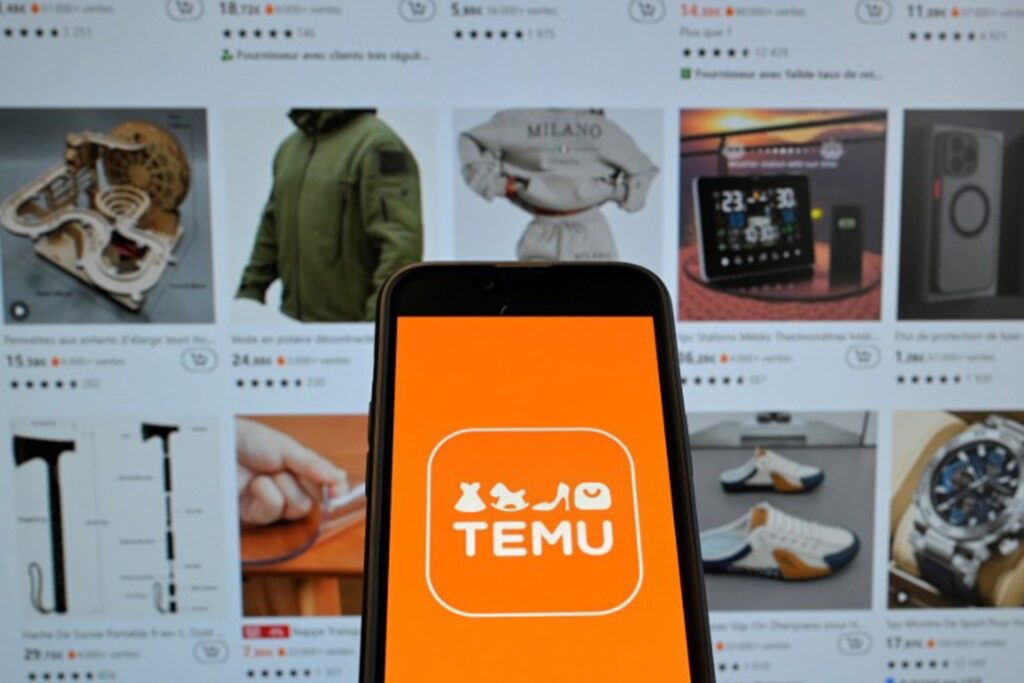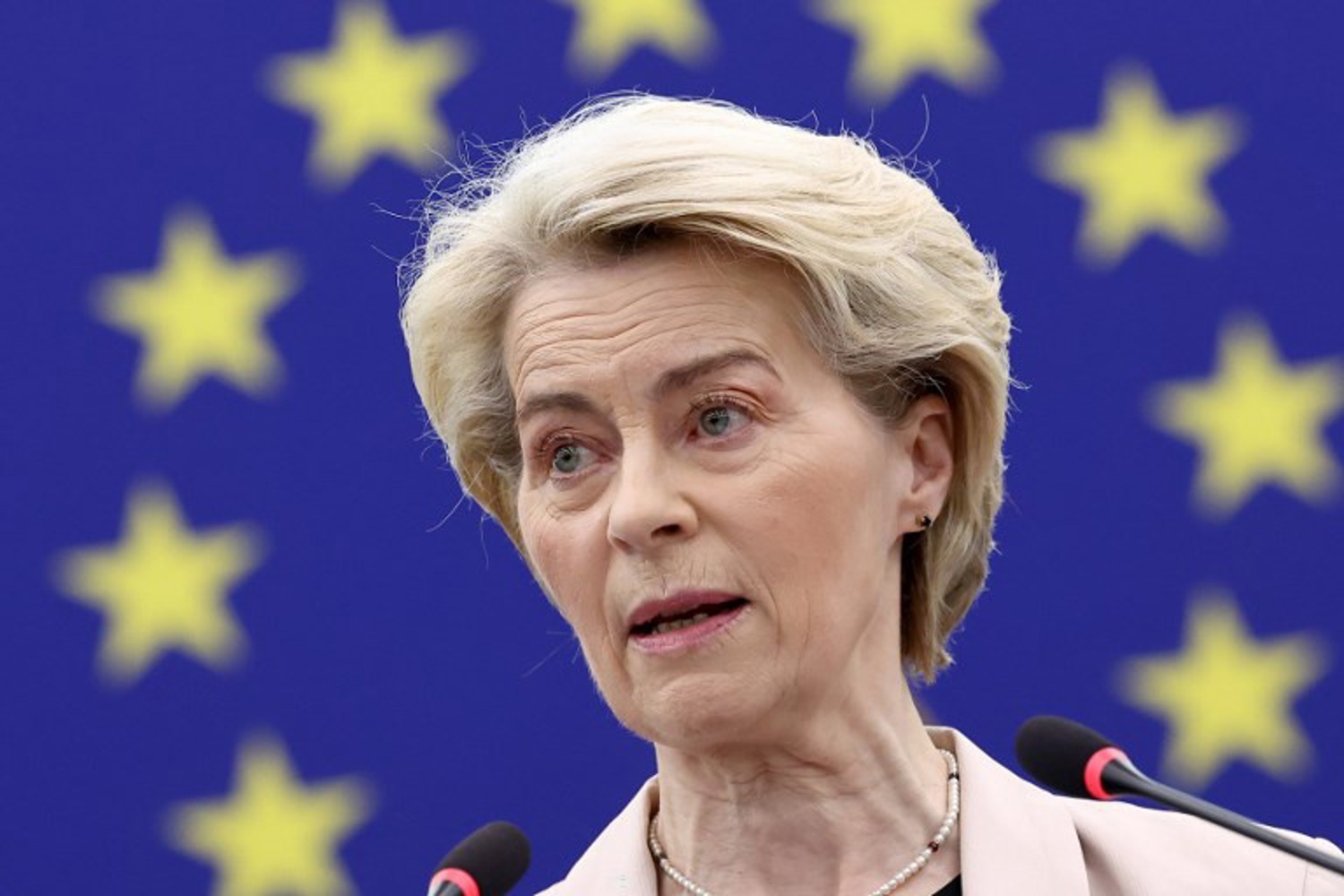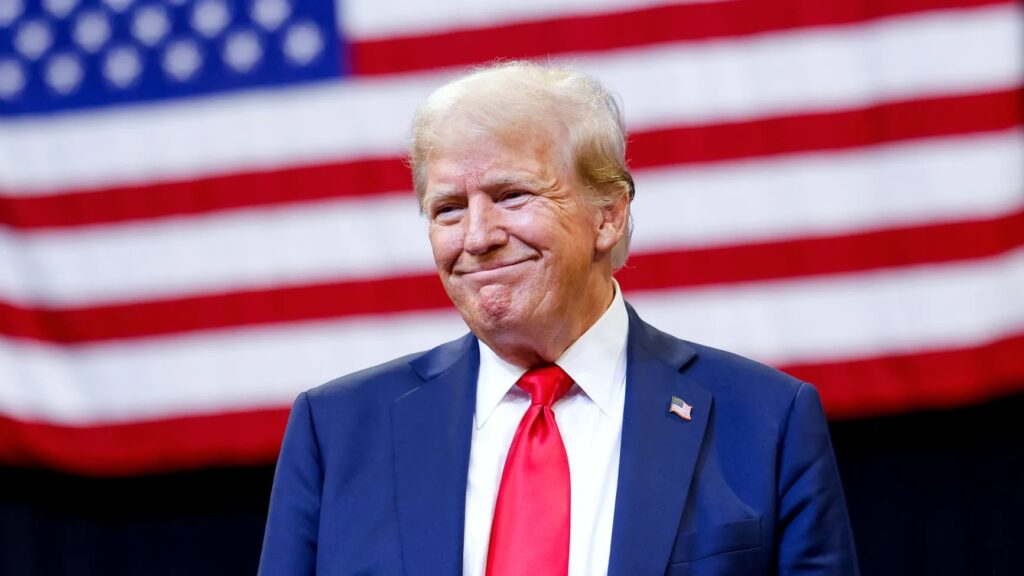United States President Donald Trump is imposing sky-high import duties on cheap products from China. Those products, which Americans often buy on Chinese online shops like Temu or Shein, will be subject to a 90% tariff from early May.
Trump signed an executive order on the import duties on Tuesday night. Goods up to $800 (roughly €724) have so far been exempt from import duties, but Trump planned to introduce a 30% duty from 2 May. Now, however, that percentage is tripling to 90%.
In the decree, Trump also anchored the already announced import levies totalling 104% on most other goods from China from Wednesday – also much higher than first announced.
Originally, an additional 34% duty for China was supposed to take effect at midnight on Wednesday. However, China announced retaliatory measures by imposing its own 34% tariff on US products. In response, Trump threatened an additional 50% levy if China did not back down.
As China did not withdraw its retaliatory measures, Trump's additional 84% has come into effect. It adds to the 20% Trump had previously announced for products from China. In other words, products from China will become more than twice as expensive.

The logo of Chinese e-commerce company Temu. Credit: Nicolas Tucat / AFP
Despite a slight rebound on Tuesday evening, stock markets around the world are panicking over the global trade war that Trump has unleashed. Oil has accelerated its plunge (to a four-year low of around $60 a barrel) and the South Korean won has slid to a level not seen since 2009.
South Korea is heavily dependent on its exports, especially cars, of which a large proportion is sold on the American stock market. On Wednesday, Seoul announced emergency aid of $2 billion to support its manufacturers, following the imposition of an additional 25% US tax.
Meanwhile, New Zealand's central bank was the first to act against tariffs, and cut interest rates by 25 basis points to 3.5%
On a global scale, a first salvo of tariffs of 10% came into force on Saturday on all US imports.
'Doing everything'
With the exception of the 104% tax on China, the new US tariffs – which came into force at 04:00 GMT (06:00 Brussels time) – affect some 60 trading partners at rates ranging from 11% to 50%, including the EU at 20% and Vietnam at 46%.
In the face of stock market panic, Trump is seeking to reassure. On Tuesday evening, he promised "tailor-made agreements, not off-the-rack, but haute couture," starting with America's military allies, led by Japan and South Korea.
At a dinner with senior members of the Republican Party, the conservative billionaire who is overturning the world's liberal economic order welcomed the fact that dozens of states – including Beijing, according to him – were "doing everything" to reach a Washington agreement. "These countries are calling us to kiss our asses."
For the EU, the USA's biggest trading partner, European Commission President Ursula von der Leyen urged "no escalation" during a telephone conversation with Chinese Premier Li Qiang.

European Commission President Ursula von der Leyen. Credit: Belga/Frederick Florin/AFP
The EU is expected to present its response "early next week," according to a spokesperson. According to a list consulted by AFP, bourbon will not be affected by the 25% surtax that Brussels is proposing to impose on American products.
For French President Emmanuel Macron, "the objective is to reach a situation where President Trump reverses his decision." Considered closer to Donald Trump, Italy's far-right Prime Minister Giorgia Meloni announced on Tuesday evening that she would be travelling to Washington on 17 April.
At a time when the offshore yuan, the Chinese currency circulating outside the country, has fallen to its lowest level since 2010, the trade war could undermine the global economy – with risks of inflation, unemployment and lower growth, according to analysts.
UN Secretary-General Antonio Guterres said he was "particularly concerned about the most vulnerable developing countries, where the impacts will be most devastating."

